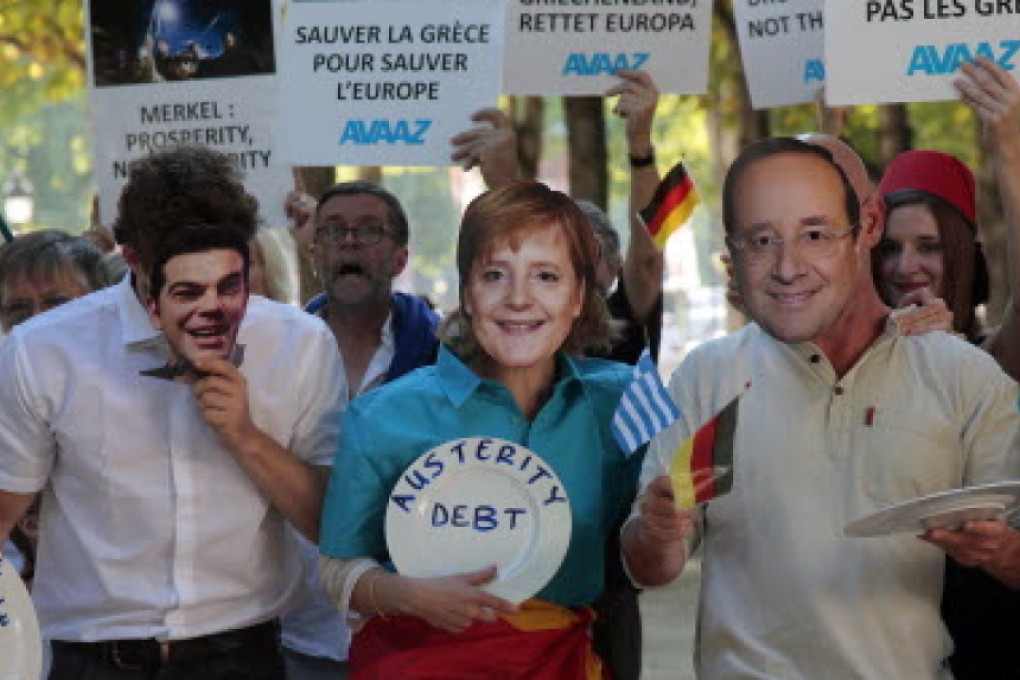Greeks show, when push comes to shove, national unity wins out
Stefan Auer says the euro zone's basic principles of a shared understanding of democracy, a shared commitment, and promise of prosperity are under serious threat as the crisis enters its next phase

The Greek government's unexpected decision to call a referendum was bold and self-destructive, but also very clever. It was bold because its consequences were unknown, and they are not much clearer even after the event. It was self-destructive because it was bound to wreak havoc on a struggling Greek economy and society - which is what already started happening over the past week. But it was also clever, because doing so called Europe's bluff: as the European Union sees itself as a beacon of democracy, its leaders struggled to respond adequately to the Greek challenge. But they will have to respond, and the situation is unlikely to improve much any time soon for Greece and Europe at large.
The referendum was also confusing. "No" actually meant yes, we support the government's move, and "yes" meant we don't. What's more, in being asked to say no ( oxi in Greek), Greeks were reminded of the legacy of their defiance against the threat of Italian occupation on October 28, 1940, when Mussolini demanded that the Greek government capitulate. "Oxi Day" is celebrated on October 28 as the anniversary of no. In addition, Prime Minister Alexis Tsipras' government was adamant that rejecting the creditors' deal amounted to a Greek endorsement of a better Europe to come - one that is fairer and based on the principle of transnational solidarity.
It doesn't require much imagination to think how other voters in the euro zone would respond to a referendum asking them to approve a new bailout for Greece
Such a promise sounds hollow to voters in Germany or Slovakia, who would foot the bill for Tsipras' extravagant policies. One national democracy is thus pitched against 18 others: it doesn't require much imagination to think how other voters in the euro zone would respond to a referendum asking them to approve a new bailout for Greece. Taxpayers in both countries are bound to lose out from the previous five years of assistance to Greece, and Greek losses are hard to accept, particularly in countries with a significantly lower per capita gross domestic product and levels of welfare: pensioners in Slovakia still receive only about half of what Greek pensioners get. To be sure, democracy implies choice, but so much of what Greek people want is simply not available to them.
Thus, European leaders in Brussels, Berlin and Bratislava urged Greeks to vote yes to show their allegiance to Europe, even as they insisted that the initial deal was no longer on offer. No wonder that, faced with such impossible choices, Greeks sided with their government. Not all of them, but a 61 per cent majority is impressive.
The euro-zone crisis is entering a new stage that is bound to further erode the EU's fundamentals: its commitment to democracy, the rule of law and the promise of delivering prosperity. As long as national allegiances remain stronger than any idea of a European demos, the euro will remain a burden that Europe is unable to carry. It requires that participating nations accept levels of outside interference that many find intolerable.
Greece's resistance shouldn't have come as a surprise. The current mess was predicted. Outgoing Greek finance minister Yanis Varoufakis promised as much too, citing Dylan Thomas to explain his country's defiance of its European creditors: "Do not go gentle into that good night ... Rage, rage against the dying of the light."